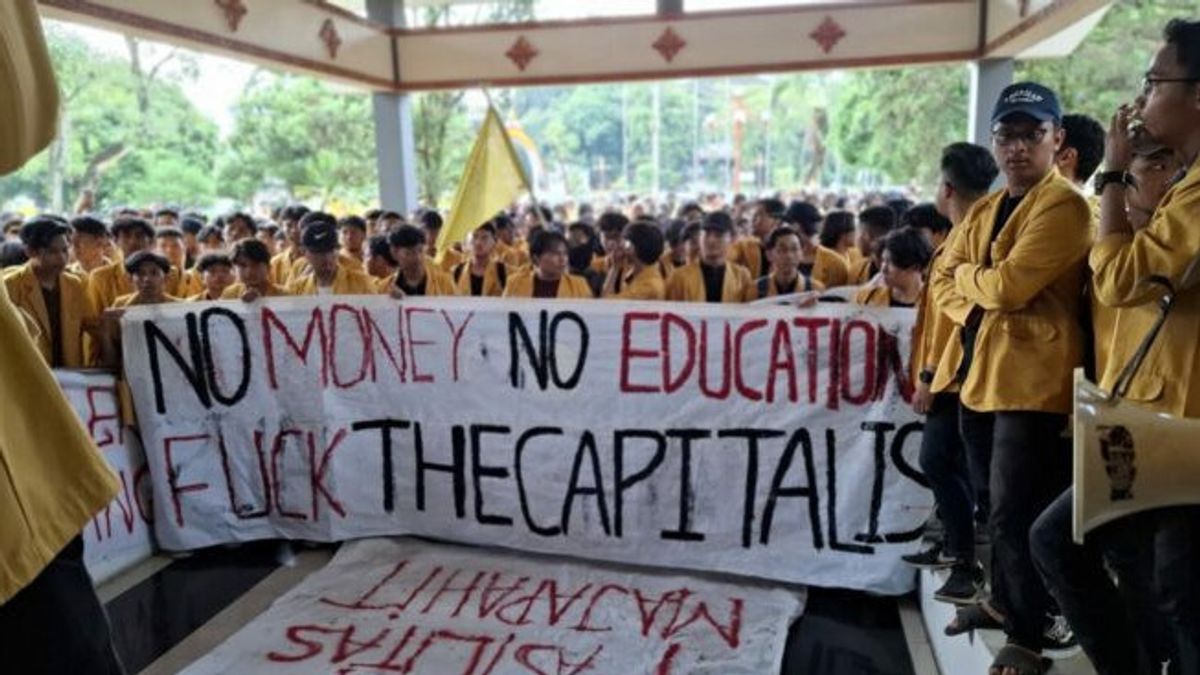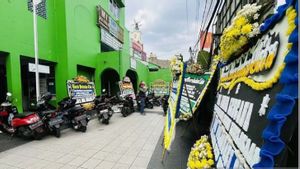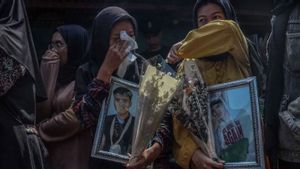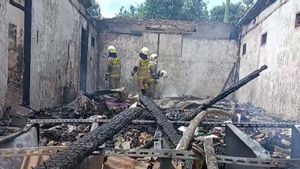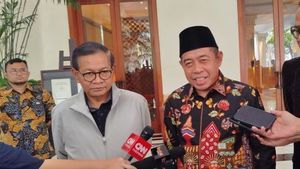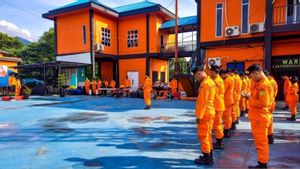JAKARTA The increase in Single Lecture Money or UKT in a number of universities has been discussed in the past few weeks. This fact seems to justify the assumption that continuing to go to college is only for the rich.
Recently, news about the Chancellor of Riau University (Unri) Sri Indarti reported her student, Khariq Anhar, to the police. This was done after Unri imposed an Institution Development Contribution (IPI) for a number of study programs in 2024.
The numbers vary from each study program (prodi), but the policy makes students protest. One of these protests was carried out by creating social media content. As a result of this content, students from the Faculty of Agriculture, Khariq, were policed by their own chancellors, even though recently the report had been withdrawn.
Then on Monday (13/5/2024) hundreds of students from Sebelas Maret University (UNS) Surakarta held a demonstration in front of the campus rectorate building. They protested regarding the high cost of UKT.
Protests were also carried out by students from the University of North Sumatra (USU), on May 8, 2024, after this year's UKT increased again by 30 to 50 percent. Hundreds of students rallied at the USU Chancellor Bureau Office, Rejecting UKT which rose high, even though learning facilities on campus were considered still bad.
The increasing wave of protests in a number of universities following the high cost of UKT has attracted public attention. Education observer Ubaid Matraji explained that the high cost of base money and UKT at a number of universities in the country, the estuary of which is in government policy related to State Universities as Legal Entities (PTNBH).
PTNBH is a university established by the government with the status of an autonomous public legal entity. Prior to becoming PTNBH, universities with the status of autonomous public legal entities were known as PTN State-Owned Law Entities or PTN BHMN.
Citing Law Online, the legal basis for the emergence of PTNBH is after the issuance of Law Number 12 of 2012 concerning Higher Education. PTNBH is intended so that universities can develop more quickly by managing it independently.
Thus, according to Ubaid PTN BH no longer 'cheating' to state financing. Even though the state has a very big role because when UKT is expensive, it should be subsidized by the state.
"The current high UKT problem is because PTN BH, which is part of the episode of the Merdeka Campus. Actually, it cannot completely blame the campus," Ubaid told VOI.
Ubaid said that the PTN BH policy was not yet implemented in Indonesia because access to universities was still minimal, only under 10 percent. Not to mention the high potential for dropping out of college because of the high cost of UKT.
"So the PTNBH policy which is directed towards business or campus commercialization justifies that only rich people can go to college, while the poor cannot go to college," said the National Coordinator of the Indonesian Education Monitoring Network (JPPI).
SEE ALSO:
For this reason, Ubaid emphasized that the government could evaluate the PTNBH policy due to the high wave of protests and objections from the public.
"PTNBH is the estuary of central government policy. So, the upstream issue of PTNBH must be stopped, namely Law No. 12 of 2012, it needs to be revised, there is no need for PTNBH, meaning that PTN is the responsibility of the government regarding financing," he said.
In the midst of the high UKT which sparked a wave of protests from a number of circles, Indonesia is also facing a low level of University Rude Participation Rate (APK), even losing to neighboring countries.
In 2023, the Indonesian APK is 31.45 percent and in 2024 39.37 percent. This figure is still below the global average of 40 percent. This means that there are still 68.55 percent of high school graduates or equivalent students who do not continue their education to higher education levels.
This figure is much lower than neighboring countries, where Singapore's APK reached 91.09 percent, Thailand 49.29 percent, and Malaysia 43 percent.
Professor of the Indonesian University of Education (UPI) and education observer Cecep Darmawan said that one of the lower levels of the APK was influenced by economic factors due to high tuition fees so that it was not reached by the general public.
There are still 69% of SLTA children who do not continue their studies. This happens every year, if there are three classes, only one class will continue to study in semesters, the other two classes will not. This figure must be immediately intervened by the government to be improved through various programs," explained Cecep on February 25, 2024.
For information, the university's APK is used to measure how many people aged 17-24 years who are studying higher. Countries with higher PT APK have the opportunity to become developed countries because the quality of human resources is high.
The English, Chinese, Japanese, Arabic, and French versions are automatically generated by the AI. So there may still be inaccuracies in translating, please always see Indonesian as our main language. (system supported by DigitalSiber.id)
